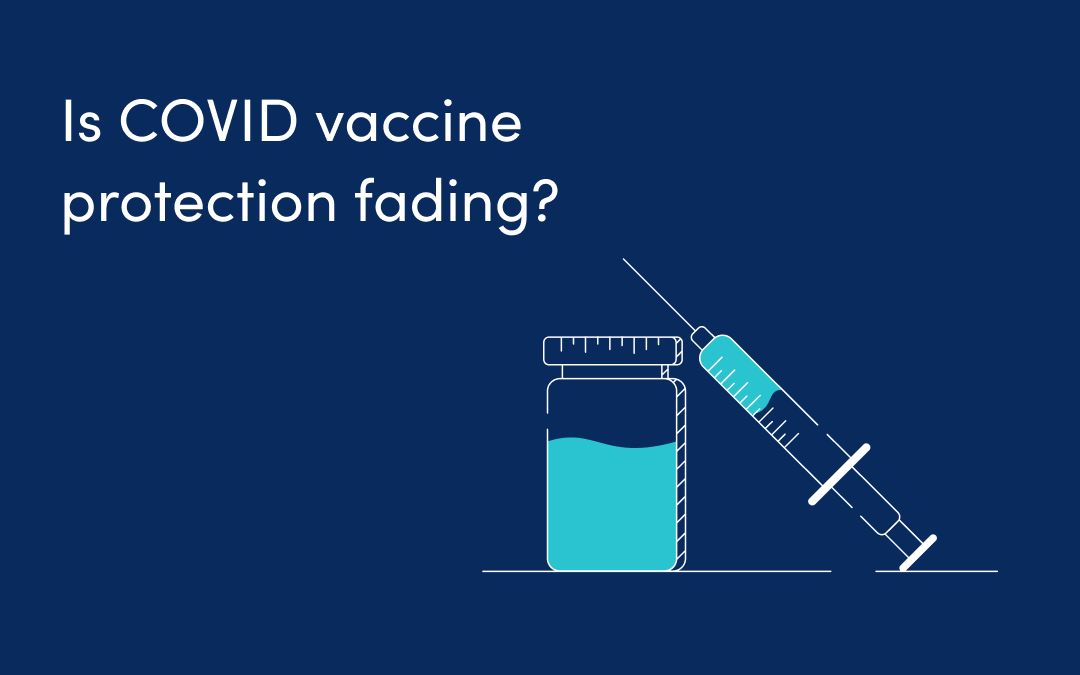Waning of efficacy and interpretation
A lot of controversy has come up with the boosters for the COVID-19 vaccines and efficacy. The Israeli study on efficacy comparing people vaccinated last year to people vaccinated this year seemed to indicate the efficacy was waning over time. The clarity around the issue is confusing due to biases like selection biases and lack of properly designed studies around the issues. There is also confusion about what is being discussed and evaluated in terms of efficacy, is it symptomatic disease or severe disease?
According to an article in Science (Vogel, 2021), the author stated that according to a large study published in Morbidity and Mortality Weekly Report on August 18, a review of patient health records from May to July 2021 showed that vaccine efficacy against the COVID-19 viral infections dropped from 91.7% to 79.8% during that time period, largely perhaps due to the delta variant, but those percentages are against symptomatic disease which they don’t state in that article. The protection against hospitalization for COVID-19 though stayed close to 95%. This protection against severe disease and hospitalization is precisely for what the vaccines were designed, but the majority of the news information published is focused on the drops in the symptomatic protections, often times not delineating the differences like in this Science article referenced. It is unknown if this is to cause controversy or if it due to misunderstanding on behalf of the reporters on interrupting scientific data.
Naturally, one would probably not expect the reporters writing the stories to understand how the percentages are derived. Should we expect them to interpret relative risks or odds ratios? Perhaps with the COVID-19 pandemic we have realized more than ever the need for proper interpretability of science and the need to have proper scientific advisors who can explain these information to the general public.
Going back to the statistics, these data were studies retrospectively from one time point to another, which is fine. Moving forward, would it be possible just like in the clinical trials, to study the data as real world analyses but prospectively in order to understand efficacy changes over time? Maintaining good study design to answer these questions is needed for reliable results.
Keywords:
COVID-19, vaccines, efficacy, selection bias, study design
References
Vogel, Gretchen (August 27, 2021). “Unethical? Unnecessary? The COVID-19 vaccine booster debate intensifies”. Science, https://www.science.org/news/2021/08/unethical-unnecessary-covid-19-vaccine-booster-debate-intensifies.
https://assets-global.website-files.com/5e3d471e8cf47516ebfaf0fb/61261e2b78c5ae6d5649c5b2_Vaccines%20fading_WEB_V2.png
